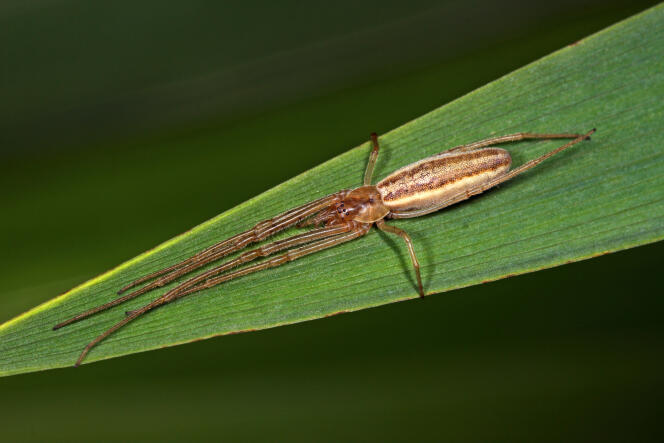


Mercury is a terrible poison. A "global pollutant," according to scientists, because it is found all over the world. It's dreaded because it follows a convoluted path. It is found on land, but it reaches its full toxicity when transformed into methylmercury by aquatic bacteria in water. It then accumulates in all water creatures, from insects to fish. For humans, it can be harmful, particularly to the unborn. So much so that the World Health Organization has classified it as one of the 10 pollutants of greatest concern. Even though its use has been considerably reduced, gold mining, consumption of fossil fuels (particularly coal) and old industrial waste continue to pollute rivers, lakes and oceans. The European Environment Agency estimates that mercury levels in the seas are three times higher than they should be. It's worse in some lakes.
Spiders of the genus Tetragnatha have a front-row seat to this sad spectacle. They even play a role in it – a secondary role, for the time being, but one that could grow, according to an article published on Wednesday, September 13, in the journal Environmental Science & Technology Letters. As scientists from the US Geological Survey (USGS) have pointed out, these creatures feed exclusively on aquatic insects, and are eaten by frogs, snakes and birds. They therefore contribute to reinjecting the pollutant into the terrestrial food chain.
Should we get rid of them? "Certainly not," insisted Sarah Janssen, the principal author of the publication. "Otters and muskrats also feed in water. Tadpoles grow up in the river and then, as frogs, emerge from it. Aquatic insects reproduce on land. They too contribute to the transfer." Understand from this that we're not going to eradicate them all.
Tetragnathes also have a trump card: they're true sentinels. They see all, and conserve all. In fact, the various sources of mercury (natural, combustion, waste) each present a particular balance between different isotopes. By analyzing the insects, fish and spiders in two tributaries of North America's immense Lake Superior, USGS researchers have shown, for the first time, that the latter retain the signature already observed in the first two.
There's no contest between dragonflies, perch and spiders [for research purposes], underlined the scientists. Firstly, the spider not only provides information on aquatic pollution, but also shows how mercury is transferred to the terrestrial environment. That's not all, said research coordinator David Walters. "They're much easier to catch – you don't need any equipment other than a flashlight," he stated. "They're also much more stationary, unlike fish, which are constantly on the move. So, they offer incomparable spatial information. Finally, Tetragnathes are found almost everywhere there's fresh water. So, they'll allow worldwide comparisons to be made."
You have 19.28% of this article left to read. The rest is for subscribers only.
